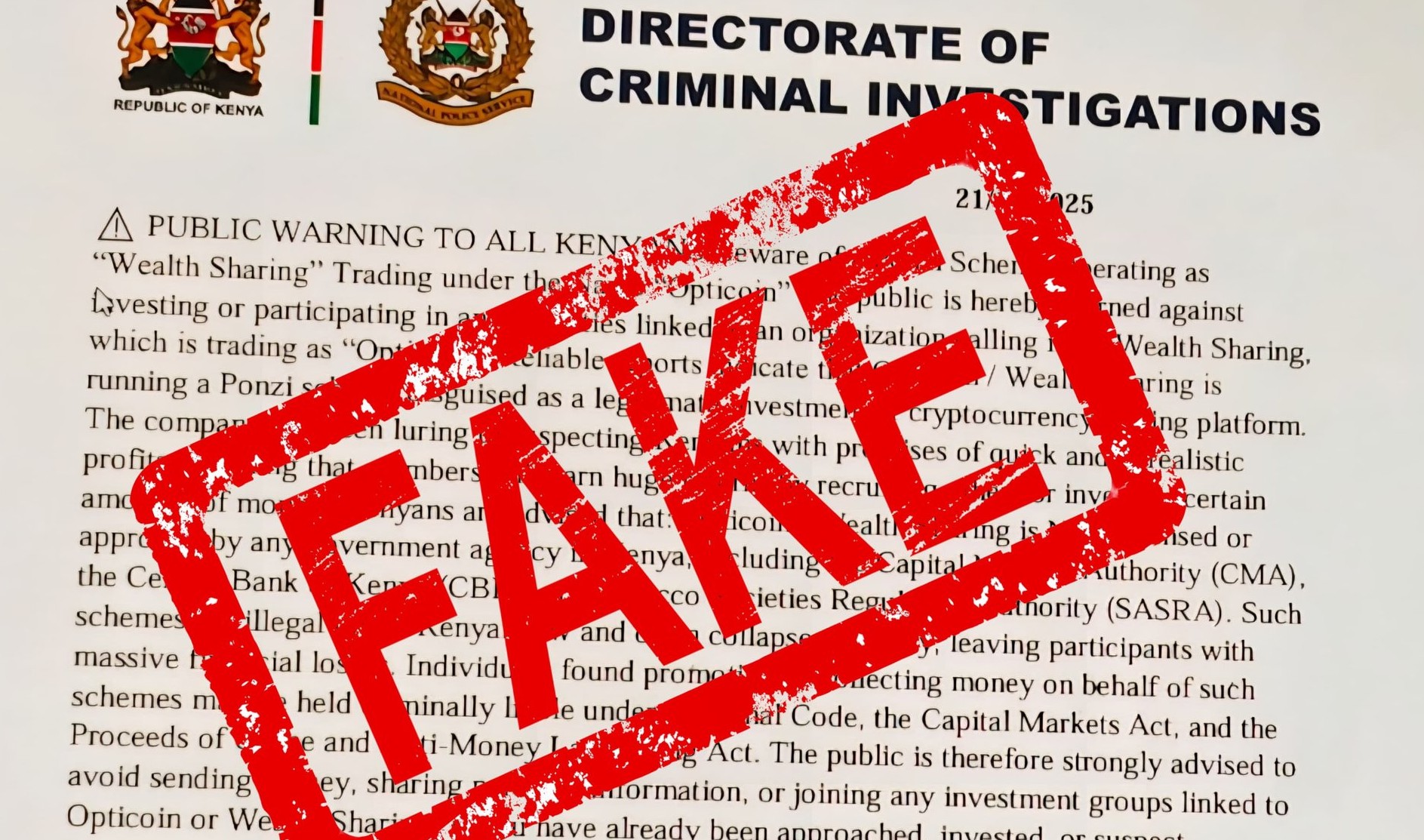
 Spreading false information purporting to come from a government body is illegal and punishable under Kenyan law.
Spreading false information purporting to come from a government body is illegal and punishable under Kenyan law.
The Directorate of Criminal Investigations (DCI) has dismissed as fake a document circulating online purporting to warn Kenyans against investing in a company said to be operating as “Wealth Sharing” and trading as “Opticoin.”
The document, which bears the Republic of Kenya and DCI logos, has been widely shared on social media, misleadingly presenting itself as an official public warning from the investigative agency.
It claims that the company is “running a Ponzi scheme disguised as a legitimate investment or cryptocurrency trading platform” and cautions Kenyans against investing in it.
Dated October 21, 2025, the notice begins with the headline “PUBLIC WARNING TO ALL KENYANS” and mimics the structure and tone of genuine DCI statements.
However, the DCI has disowned the document, clarifying that it did not originate from its offices.
The agency flagged it on X under the tag ‘FAKE NEWS ALERT’, with a bold red “FAKE” stamp diagonally across the notice, warning the public to disregard it.
Spreading false information purporting to come from a government body is illegal and punishable under Kenyan law.
The incident comes amid renewed focus on Kenya’s digital safety and accountability following the enactment of the Computer Misuse and Cybercrimes (Amendment) Act, 2024, signed into law by President William Ruto on October 15, 2025.
The revised law introduces far-reaching changes to the country’s cybersecurity framework. Sections 23 to 27 of the Act enhance penalties for cyber harassment and the publication of false information.
It specifically prohibits the dissemination of false or misleading content that causes public panic, raising penalties for online harassment — including cases leading to suicide — to 10 years in prison or a fine of Sh5 million.
The amendments also empower the National Computer and Cybercrimes Coordination Committee (NC4) to order the blocking or removal of websites, applications, or digital content deemed to promote “illegal activities, terrorism, child pornography, or extreme religious practices” without judicial oversight.
In addition, the law introduces clear definitions for phishing and other forms of online fraud, with penalties reaching Sh10 million or 20 years’ imprisonment for severe offenses.
While the amended Act strengthens Kenya’s cybersecurity regime, it has stirred debate among civil society groups and media stakeholders, who caution that some vaguely worded provisions could be misused to target journalists and whistleblowers.
As digital regulation tightens, experts are urging companies managing online platforms to ensure strict compliance with NC4’s directives and to train employees — especially social media handlers — on responsible data use to avoid liability for cyber harassment or misinformation offenses.













